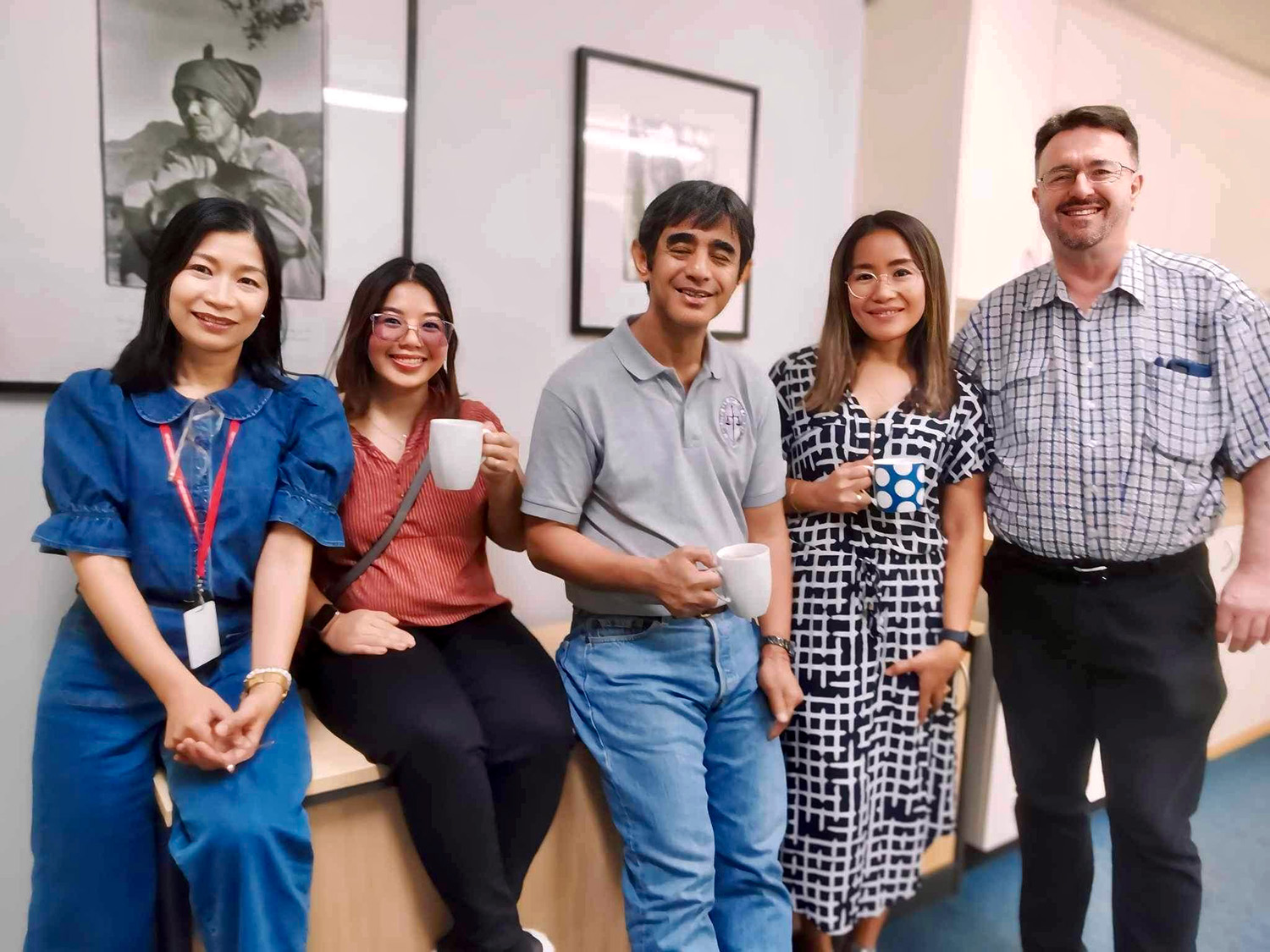Episcopal Church in the Philippines seeks to strengthen teaching of Community Values in Church Schools
Teaching Community Values in Church Schools in the Philippines
Last week, ABM and AID had the pleasure of a visit by two members of the Episcopal Church in the Philippines (ECP) – Provincial Secretary, Attorney Floyd Lalwet, and Deacon Naliza Beswilan. Naliza teaches at the Trinity University of Asia in Quezon City, the Philippines. Both visitors are in Australia to visit Anglican schools and learn more about the chaplaincy program in the schools.
At a meeting attended by ABM and AID staff, Attorney Lalwet outlined both the challenge that the church is facing and the church’s vision for addressing the challenge.
“Recently, we have come to accept that one of the threats to our mission of community building is the education system we have.”
Floyd shared about his own experiences as a younger person. “There was a time when most of my village were farmers, with the same concerns, issues and aspirations. It was very easy then to mobilise the whole community. For example, I joined the entire village in pitching together in 1974 to build a house for a newly married couple in the village.
“As the years went by, people went to school, university, and joined professions. You would have thought this would benefit the community as various skills and knowledge complemented each other, but it actually contributed to a weakening of the values of community as economic segregations and walls of division were established.
“We realised we have a role to play here. The fault was ours. It was in our capacity to impart the values needed for community advancement.
“The ECP has more than 25 schools all over the country. But we need to re-frame the mission of our schools.
“At a meeting last week, we talked about what kind of values, what kind of communities we want to see. Let me give you an example. Andrew, a valedictorian at one of our church international schools went on to study medicine at the University of the Philippines. He topped the medical board examinations then did postgraduate studies at Emory University. This cv guaranteed him an exalted place in the medical profession but he opted to practice medicine in the rural town of Sagada in the Mountain Province. This is the kind of person we want to see graduating from our schools.
“Another graduate of our church schools went on to study nursing at the prestigious St Luke’s School of Nursing in Manila. Most graduates of this school end up going to the United States to work, as they are in very great demand. But, instead of going overseas, she married an ECP priest, went with him to a remote rural village, and opened a dispensary there where she treats her patients for free.
“These two people see their degrees as a vocation, and their skills as a gift to be shared. But these two are very much exceptions to the rule. In re-framing our schools, we want to produce more of these kinds of graduates. We want to impart the Five Marks of Mission[1] in our schools.
“Our schools have always been a big part of the mission of the church. But in the 1970s, the schools were encouraged to gain independence, as they sought their own sources of funding. But in doing this, their connection to the work of the church weakened. They became regarded as a “service arm” of the church. Some also became the most expensive schools in the community and were out of reach of poor families.
“We found it increasingly hard to set up even a basic level of spiritual foundation in the schools, where academic success increasingly came to be defined as achievement of possession, power and privilege.
“Now, our schools are recognising that there is a problem with this emphasis on individual development and individual achievement. But, how to proceed?
“Except for our bigger schools which can afford full-time chaplains, chaplaincy in the ECP schools was mainly a token program where Seminary interns worked for 6-12 months and then went on to other positions in the church. These interns were not trained in school chaplaincy. Many of our schools use this model, and only a couple have trained, full-time chaplains.
“So, this is why we are here in Australia. We need to partner with schools that have a more developed Christian education focus. We really need to live out the Five Marks of Mission. We see these partnerships, through the existing relationship between ECP and ABM, as being two-way. Australian school chaplains can share their expertise with us, and in turn, contact with the ECP schools will enrich the values of the Australian schools.
“We want parents to send their children to our schools because of the values our schools are imparting. And we want to increase the number of enrolments, so that this will lead to a lowering of fees, enabling greater affordability for ordinary people.”
We ask you to pray for the success of the mission of Floyd and Naliza in Australia and for the future of the Episcopal church schools in the Philippines. They have particularly asked our prayers for:
- God to enable the ECP institutions and communities to look upon their work as vocation
- Skills learnt at the schools to be shared with others for the greater good of the community.
You can learn more about one of these ECP schools that ABM AID is supporting through funding and prayers here: https://www.abmission.org/projects/the-philippines/enhancing-primary-education-ecare/
[1] The Five Marks of Mission of the Episcopal Church in the Philippines can be found here: https://ecphilippines.wordpress.com/five-marks-of-mission/
